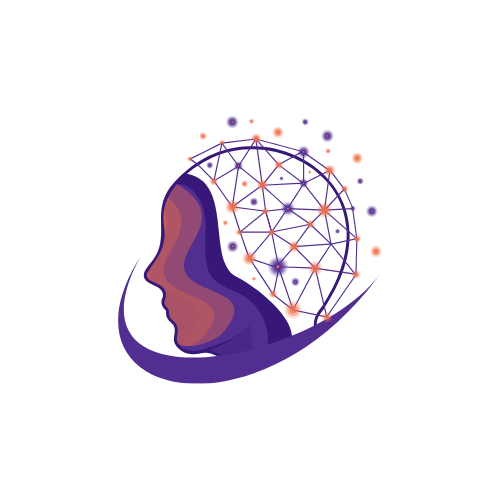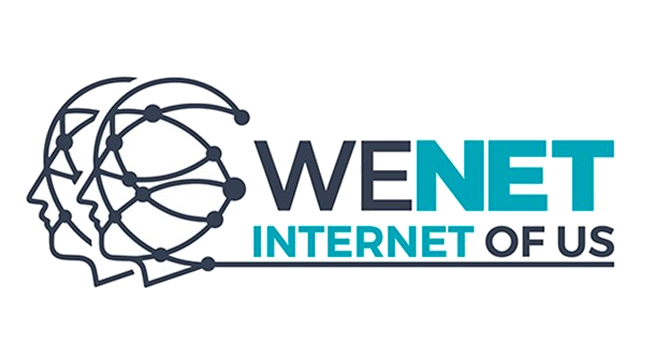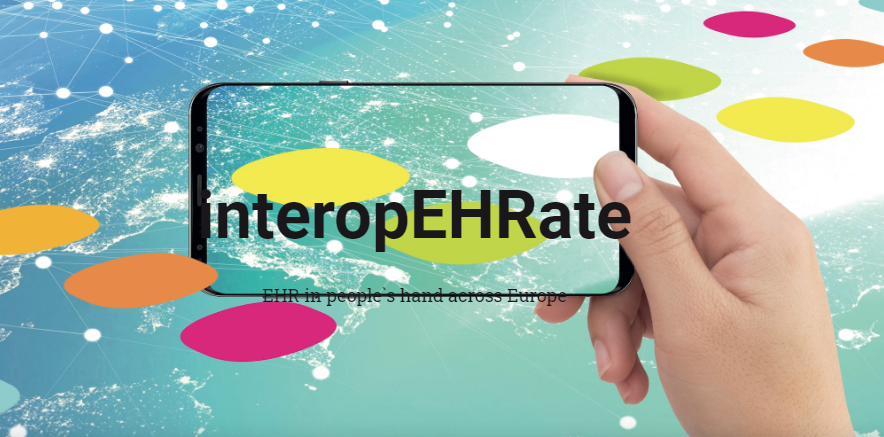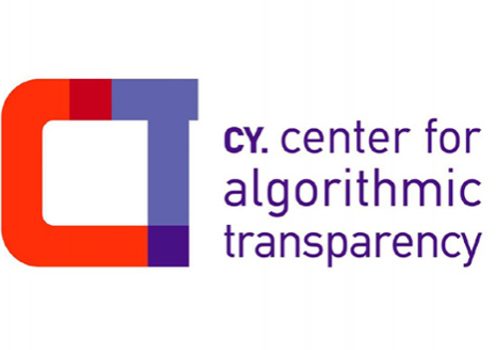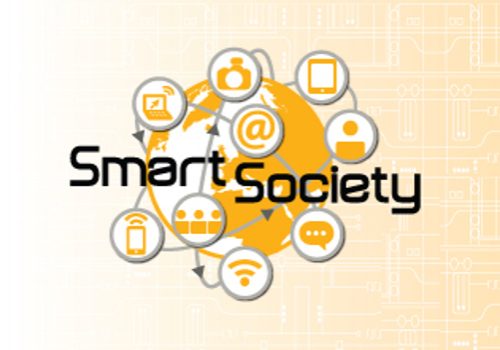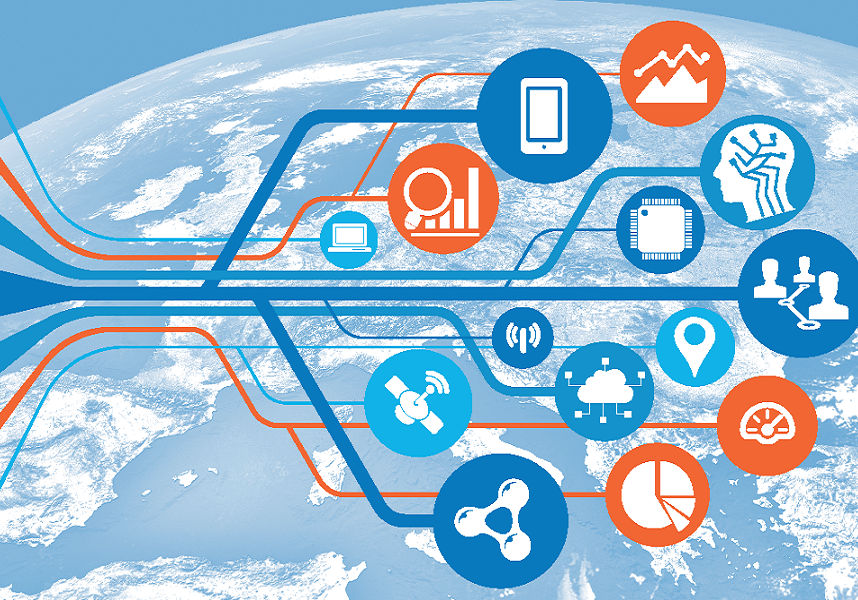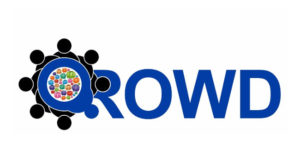Edvance
Edvance is Italy’s first Digital Education Hub for higher education dedicated to Advanced Digital Culture, a groundbreaking initiative launched within the National Recovery and Resilience Plan (NRRP), Mission 4 “Education and Research”. Led by Politecnico di Milano, the project brings together 17 leading Italian universities and AFAM institutions to build a unified digital ecosystem that redefines how digital education is created, delivered, and experienced.
Edvance
Edvance - Digital Education Hub Higher Education
Edvance is Italy’s first Digital Education Hub for higher education dedicated to Advanced Digital Culture, a groundbreaking initiative launched within the National Recovery and Resilience Plan (NRRP), Mission 4 “Education and Research”.
Led by Politecnico di Milano, the project brings together 17 leading Italian universities and AFAM institutions to build a unified digital ecosystem that redefines how digital education is created, delivered, and experienced.
At the heart of the initiative is the Edvance platform, offering over 200 free online courses, enhanced with open badgesto validate learning achievements. This extensive catalog empowers students, educators, and professionals to develop cutting-edge digital skills in fields such as artificial intelligence, data management, digital sustainability, and transdisciplinarity.
Edvance is committed to producing high-quality MOOCs and innovative blended learning experiences that combine the strengths of online flexibility with in-person engagement. Leveraging advanced AI technologies and integrating perspectives from the humanities and creative disciplines, the project enhances the interactivity, accessibility, and effectiveness of digital learning—reducing dropout rates and enriching academic and professional development.
The ecosystem supports a modular and customizable learning approach, enabling learners to build personalized pathways through micro-credentials aligned with the evolving needs of the labor market. These can be combined to earn formal certifications, supporting continuous growth and upskilling.
Within Edvance, KnowDive is contributing by developing four MOOCs designed to introduce non-expert audiences to the discovery and practical use of artificial intelligence and data—making AI knowledge accessible, intuitive, and impactful.
Project Number: Funded by the European Union - Next Generation EU, Component 1, Investment 3.4 “Advanced university education and skills”
AI4Everyone
The AI4Everyone project aims to empower participants to navigate and critically adopt AI technologies by creating educational resources that foster awareness, discovery, and responsible use of AI in everyday life.
AI4Everyone
AI for Everyone: Bridging the Gap Between Smart Technologies and Society
The AI4Everyone project aims to empower participants to navigate and critically adopt AI technologies by creating educational resources that foster awareness, discovery, and responsible use of AI in everyday life.
AI4Everyone project addresses the growing need for students and citizens to develop a deeper understanding of AI's role in daily life, particularly within the modern, data-driven AI paradigm. By examining the ethical and social implications of AI's widespread use, the project seeks to empower learners to make informed decisions, and critically evaluate AI applications, while understanding their potential benefits and inherent risks.
The project will:
Develop instruments to measure AI awareness in all five EU countries involved, and track progress.
Create an adaptable curriculum with online and blended courses aimed for different audiences.
Launch a Massive Open Online Course (MOOC) for wider outreach.
Offer hands-on activities to explore how AI impacts daily life and society.
Project number: Project 2025-1-CY01-KA220-HED-000364525
Trustworthy Gen AI
Artificial Intelligence (AI) has become the main driver of growth in information technology, touching all sectors in the industry, ranging from healthcare, to finance, and transport. The goal of the project is to design and develop generic technologies and methodologies for improving AI systems’ resilience against security, privacy, and fairness attacks, as well as to increase the trust that their users have in these systems, while accounting for different phases of...
Trustworthy Gen AI
Trustworthy Gen AI
Artificial Intelligence (AI) has become the main driver of growth in information technology, touching all sectors in the industry, ranging from healthcare, to finance, and transport. The goal of the project is to design and develop generic technologies and methodologies for improving AI systems’ resilience against security, privacy, and fairness attacks, as well as to increase the trust that their users have in these systems, while accounting for different phases of the AI life cycle, starting from data collection through training and deployment. The project will encompass three major AI architectures:
- knowledge graph (KG) representation and learning,
- continual learning, and
- large language models (LLMs).
These three approaches will be investigated with the goal of designing solutions aimed for scenarios involving dynamic data collection, distributed model training, and scenarios that involve human-in-the-loop (HITL) design principles. The project will develop customized robustness solutions for both existing and newly developed privacy, adversarial, and fairness attacks. The project will also consider the impact of these solutions on humans, how to explain to them the underlying technologies and the risks, and employ their help in the improvement of these models. These technologies will be evaluated against four use cases illustrating scenarios from different sectors, i.e., marketing, IT, finance, and healthcare. Moreover, the project will strive to generate generic/holistic guidelines and recommendations for building trustworthy and robust AI systems.
Start date: 1 July 2025
End date: 30 June 2028
Coordinator: Eurecom
Coordinator partners:
University of Trento, University of Twente, Indian Statistical Institute
Funding agency and program: European Health and Digital Executive Agency (HaDEA) - Horizon Europe (HORIZON)
Access the page Trustworthy Gen AI
JIDEP
Joint Industrial Data Exchange Platform is a digital space where industrial data is available for sharing and connecting manufacturers from different sectors into a collaborative, mutually beneficial knowledge and data-sharing relationship. It builds upon ...
JIDEP
JIDEP: Joint Industrial Data Exchange Platform
Joint Industrial Data Exchange Platform
is a digital space where industrial data is
available for sharing and connecting
manufacturers from different sectors into a
collaborative, mutually beneficial
knowledge and data-sharing relationship. It
builds upon the principles of Industry 4.0 by
adopting a coherent approach to semantic
communication between diverse actors,
aiming to make both direct and indirect
contributions to the EU climate neutrality
goals of 2050. JIDEP is a landing place for
any organization that has a data challenge to
be addressed on its journey towards
delivering a more sustainable material,
product, service or solution. The JIDEP
tools will help organizations to unlock the value of data, leading to the development of more sustainable solutions,
technologies, and materials.
The JIDEP platform will be designed to cover the entire product lifecycle and assist in steering it towards circular
standards implementation at both technological and regulatory levels. JIDEP will integrate a toolset implementing
with a resilience framework for growing organizational and industrial capacities to withstand supply chain
disruptions in the short-, medium- and long-term. As such, JIDEP ingests industrial data and produces sustainability,
resilience, and circularity guidelines, knowledge and specific solutions for its users.
Start date: 1 June 2022
End date: 31 May 2025
Coordinator: Fausto Giunchiglia
Coordinator partners:
Brunel University London, Arteevo Technologies Ltd, University Degli Studi Di Trento, Technovative Solutions Ltd, The Chancellor Masters And Scholars Of University Of Cambridge, Adscensus, MB, TPI Composites, ALMAS Partecipazioni Industriali S.P.A., Centro Ricerche Fiat Scpa, Precision Varionic International Limited, Zorlu Enerji Elektrik Uretim As, Univerzita of Pardubice, Fachhochschule Vorarlberg GMBH.
Knowdive members participating to the project: Fausto Giuchiglia, Mayukh Bagchi, Simone Bocca, Alessio Zamboni
Knowdive research areas relevant to the project: Knowledge Diversity
Funding agency and program: Horizon Europe Research and Innovation, Grant agreement ID: 101058732
Access the page JIDEP
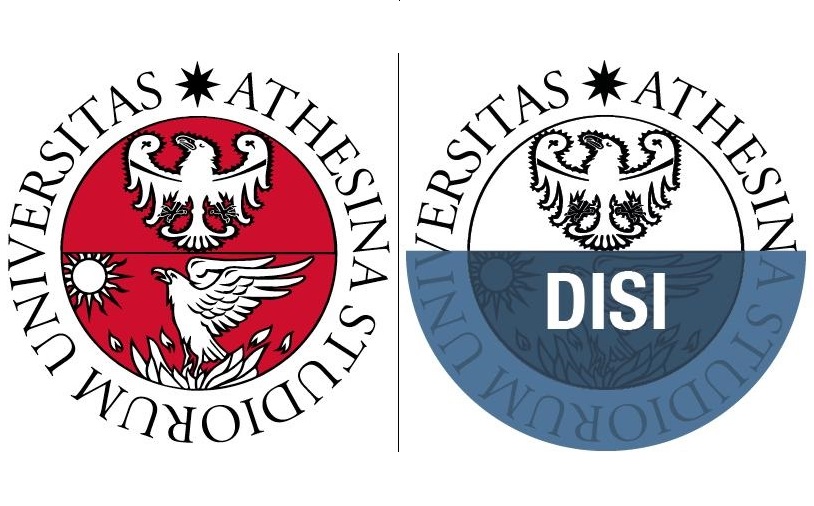
ISTAT - SmartSurveys
More and more there is a need of doing surveys using the most advanced features which are supported the current state of the art. Some such examples, which are part of this ...
ISTAT
ISTAT - SmartSurveys
More and more there is a need of doing surveys using the most advanced features which are supported the current state of the art. Some such examples, which are part of this collaboration are: pervasive data collection using mobile devices (e.g., smart phones but not only), real time question answering, machine learning from data, privacy aware data collection and preparation, integration of sensor data and sue answers, exploitation of big data.
Start date: June 2021
End date: June 2026
Partners: ISTAT, Dipartimento di Sociologia dell’Università di Trento, Dipartimento di Ingegneria e Scienza dell’informazione dell’Università di Trento
Knowdive members participating to the project: Matteo Busso, Ronald Chenu Abente, Marcelo Dario Rodas Brites, Can Gunel, and others
Knowdive research areas relevant to the project: Human- Machine symbiosis
Keywords: Smart Surveys, Pervasive Systems, Data Streams, Modelling and Understanding Human Behavior, Machine Learning
Funding agency and program: Self-funded by the partners
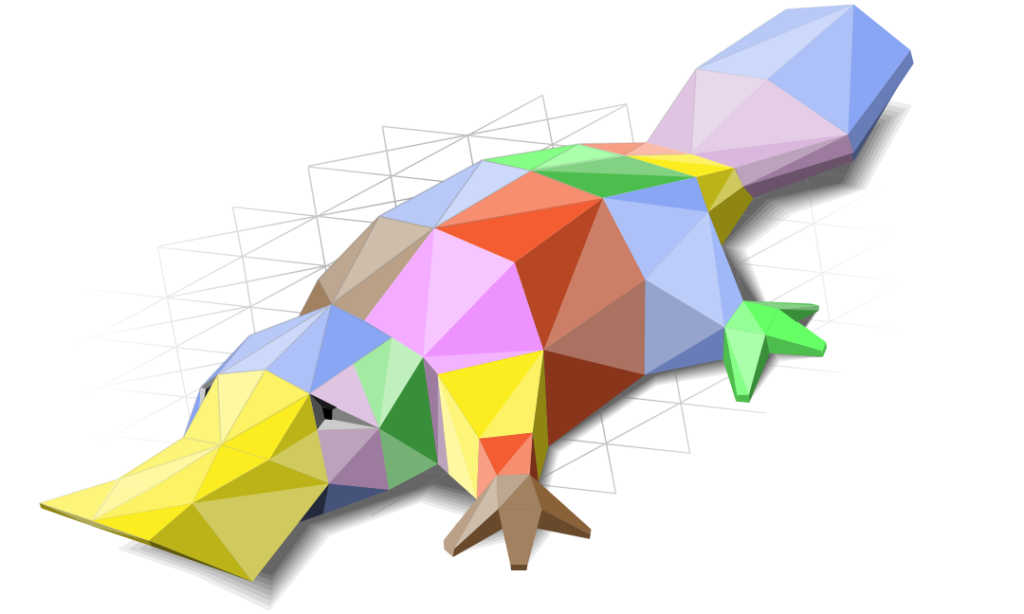
Delphi
Our ultimate goal is to build machines with human-like knowledge which can seamlessly interact with people. We capture this intuition in the definition of general knowledge, where . . .
Delphi
Delphi – Discovering Life Patterns
The main goal of this proposal is to allow computers, such as smartphones, to understand their user’s personal life (e.g., where she goes, what she does, how she feels and who she spends time with) and to exploit this knowledge to support her in the everyday life. The key idea is to discover and exploit her life patterns, which can be intuitively thought of as situations which repeat themselves, almost but not exactly, identical with regularity.
The challenge is how to synchronize a sensor and data-driven representation of the world, which is noisy, imprecise and agnostic of the user needs with a knowledge-driven representation of the world which should be: (i) general, by allowing for the representation and integration of different combinations of sensors and interesting aspects of the user’s life and, (ii) adaptive, meaning by this the possibility to represent life happenings at the desired level of abstraction, and also to evolve them, adapting to changes in the life dynamics.
The approach will exploit three main components: (i) a methodology and mechanisms for an incremental evolution of a knowledge level representation of the world, e.g., ontologies, which preserves correctness, (ii) an extension of deep learning to take into account and adapt to the constraints coming from the knowledge level, and (iii) a Question Answering (Q/A) service, which allows the user to interact with the program according to her needs and terminology.
The proposed solution will be evaluates in two case studies, the first supporting people towards a healthier life, the second, which is an extension of the first, supporting people with Diabetes towards a better life.
Start date: 01/09/2021
End date: 31/08/2023
Knowdive members participating to the project: Matteo Busso, Ronald Chenu Abente, Marcelo Dario Rodas Brites, Can Gunel, and others
Knowdive research areas relevant to the project: Human- Machine symbiosis
Funding agency and program: Programma MUR anno 2017, Prot. 2017F3LMRF, Costo totale 919,790, Finanziamento UniTn.
Wenet
Diversity permeates our everyday life and covers many dimensions, such as competence, culture, gender or economic across humans and social relations. Technology has . . .
Wenet
The Internet of Us
Diversity permeates our everyday life and covers many dimensions, such as competence, culture, gender or economic
across humans and social relations. Technology has evolved to a point where humans from diverse backgrounds,
cultures, and experiences have an unprecedented ability to connect with each other. Yet technology does not
in-and-by-itself provide support for developing and maintaining the social relationships that transcend
geographical and cultural backgrounds.
WeNet addresses this gap by providing a diversity-aware, machine-mediated
paradigm of social relations. The goal is connecting people that can support each other, and the key is
leveraging their diversity. The WeNet paradigm includes a family of computational diversity-aware models
supporting human interaction. Learning models construct diversity profiles based on people's past behaviour
and interactions. A diversity-aware search builds upon these profiles to connect the "right" people together.
To support people’s interactions, a diversity alignment mechanism lifts communication barriers to ensure that
messages between humans are interpreted correctly, and a diversity-aware incentive mechanism generates incentives
to motivate people to support each other.
The entire paradigm is developed taking into consideration ethical
guidelines. The WeNet platform provides the technological infrastructure to set out a series of studies that
will be carried within universities worldwide with diverse student populations, and with the final goal of improving
students' quality of life inside and outside the academic environment. Beyond universities, WeNet's innovative
paradigm impacts human interactions in general, especially those that may benefit from a collaborative approach
(creative industries, medical diagnosis, ...). The WeNet consortium will develop a research infrastructure that
will allow the exploitation of the project results and strengthen the European innovation eco-system in a worldwide
perspective.
Start date: January 2019
End date: December 2022
Coordinator: Fausto Giunchiglia
Coordinator partners:
UNIVERSITY OF TRENTO, ANOIKTO PANEPISTIMIO KYPROU (OPEN UNIVERSITY OF CYPRUS), BEN-GURION UNIVERSITY OF THE NEGEV,
MARTEL GMBH, U-HOPPER SRL, AGENCIA ESTATAL CONSEJO SUPERIOR DE INVESTIGACIONES CIENTIFICAS, FONDATION DE L'INSTITUT DE RECHERCHE,
LONDON SCHOOL OF ECONOMICS AND POLITICAL SCIENCE, EBERHARD KARLS UNIVERSITAET TUEBINGEN, AALBORG UNIVERSITET, UNIVERSIDAD CATOLICA
NUESTRA SENORA DE LA ASUNCION, NATIONAL UNIVERSITY OF MONGOLIA, AMRITA VISHWA VIDYAPEETHAM, INSTITUTO POTOSINO DE INVESTIGACION
CIENTIFICA Y TECNOLOGIA, JILIN UNIVERSITY.
Knowdive members participating to the project: Fausto Giuchiglia, Ronald Chenu-Abente, Roberto Bona,
Marcelo Dario Rodas Britez, Matteo Busso, Wanyi Zhang, Sergio de Cristofaro, Andrea Bontempelli
Knowdive research areas relevant to the project: Human-Machine Symbiosis, Artificial Human Cognition
Keywords: Socially and Perception-aware Knowledge, Knowledge Management, Language Processing, Domain Development, Data Integration,
Machine Learning, Artificial Intelligence
Funding agency and program: European Union - Horizon 2020
Access the page Wenet
Some online presentations
To learn more about the WeNet online courses, please click here, where you can find the full syllabus and educational materials.
IEHR
InteropEHRate aims to support peoples’ health by opening them up new ways to make health data available where needed. To make this possible, key health data is managed in . . .
IEHR
InteropEHRate: Health Records in People's Hands Across Europe
InteropEHRate aims to support peoples' health by opening them up new ways to make health data available where needed. To make this possible,
key health data is managed in patients' hands, i.e. through Smart EHRs (S-EHR) on mobile devices. Data is always transferred via highly secure
channels including a direct device to device (D2D) communication. Patients are in full control of their data and its routes. InteropEHRate
will develop open interchange protocols supporting patient-centred exchange of health records between patients, healthcare actors and researchers.
Thus, the project will contribute to the next steps in follow-up of the February 2019 EC recommendation and help to pave the way towards an open
European EHR exchange format and process. It will specifically add a decentral, patient-driven bottom-up approach as an alternative method to the
top-down approach of exchanging patient data exclusively via the national contact for points for eHealth (NCPeH). InteropEHRate is funded by
the European Union for 42 months and is implemented by a unique consortium of experienced institutions and qualified experts. InteropEHRate
partners represent healthcare solution providers, hospitals, universities and research centers as well as European and local stakeholder associations.
Start date: 1 January 2019
End date: 30 June 2022
Project Coordinator: Engineering – Ingegneria Informatica S.p.A. (Italy)
Scientific Coordinator: University of Trento
Coordinator partners: Andaman7 Software (Belgium), EHTEL – European Health Telematics Association (Belgium),
DTCA Hygeia – Diagnostic and Therapeutic Center of Athens (Greece), University of Vienna (Austria),
EFN – European Federation of Nurses Associations (Belgium), FTGM – Fondazione Toscana Gabriele Monasterio per la Ricerca Medica e di Sanità Pubblica (Italy),
CHU de Liege – Centre Hospitalier Universitaire de Liège (Belgium), UBITECH Limited (Cyprus), UPRC – University of Piraeus Research Center (Greece),
SCUBA – “Bagdasar-Arseni” Clinical Emergency Hospital of Bucharest (Romania), SIVECO Romania S.A. (Romania),
Fraunhofer ISST – Institute for Software and Systems Engineering (Germany), ISA – Iatrikos Syllogos Athinon (Greece), Byte Computer S.A. (Greece)
Knowdive members participating to the project: Gábor Bella, Subhashis Das, Simone Bocca
Knowdive research areas relevant to the project: Language Diversity
Keywords: Multilingual Lexical Semantics, Multilingual NLP,
Knowledge-Based Data Integration, Domain Knowledge, Health Data Integration
Funding agency and program: EU H2020
A short video to introduce this project
Access the page IEHR
Cycat
The Cyprus Center for Algorithmic Transparency (CyCAT) is hosted at the Open University of Cyprus, the second public university in Cyprus and the only one dedicated to open and . . .
Cycat
Cyprus Center for Algorithmic Transparency (CyCAT)
The Cyprus Center for Algorithmic Transparency (CyCAT) is hosted at the Open University of Cyprus,
the second public university in Cyprus and the only one dedicated to open and distance education.
We collaborate with other researchers internationally and have recently teamed up with four leading
universities across Europe and Israel through an H2020 Twinning grant. Our team holds key expertise in
the algorithmic processes involved in information access, user interactions with algorithmic systems,
user-system interaction, as well as the social and cultural implications of algorithmic processes.
Start date: November 2018
End date: (Ongoing)
Coordinator: Open University of Cyprus
Coordinator partners: University of Sheffield, University of Haifa, University of Trento, University of Edinburgh
Knowdive members participating to the project: Fausto Giunchiglia, Nandu Chandran Nair
Knowdive research areas relevant to the project: Language Diversity, Knowledge Diversity
Funding agency and program: European Union’s Horizon 2020 research and innovation programme under grant agreement No. 810105
Access the page Cycat
Smart University
As the WeNet technology is deeply embedded in the social fabric, its development requires a strong empirical component, whereby the concepts, methods and tools get piloted in . . .
Smart University
InteropEHRate: Health Records in People’s Hands Across Europe
InteropEHRate aims to support peoples’ health by opening them up new ways to make health data available where needed. To make this possible,
key health data is managed in “patients’ hands”, i.e. through Smart EHRs (S-EHR) on mobile devices. Data is always transferred via highly secure
channels including a direct device to device (D2D) communication. Patients are in full control of their data and its routes. InteropEHRate
will develop open interchange protocols supporting patient-centred exchange of health records between patients, healthcare actors and researchers.
Thus, the project will contribute to the next steps in follow-up of the February 2019 EC recommendation and help to pave the way towards an open
European EHR exchange format and process. It will specifically add a decentral, patient-driven bottom-up approach as an alternative method to the
top-down approach of exchanging patient data exclusively via the national contact for points for eHealth (NCPeH). InteropEHRate is funded by
the European Union for 42 months and is implemented by a unique consortium of experienced institutions and qualified experts. InteropEHRate
partners represent healthcare solution providers, hospitals, universities and research centers as well as European and local stakeholder associations.
Start date: 1 January 2019
End date: 30 June 2022
Project Coordinator: Engineering – Ingegneria Informatica S.p.A. (Italy)
Scientific Coordinator: University of Trento
Coordinator partners: Andaman7 Software (Belgium), EHTEL – European Health Telematics Association (Belgium),
DTCA Hygeia – Diagnostic and Therapeutic Center of Athens (Greece), University of Vienna (Austria),
EFN – European Federation of Nurses Associations (Belgium), FTGM – Fondazione Toscana Gabriele Monasterio per la Ricerca Medica e di Sanità Pubblica (Italy),
CHU de Liege – Centre Hospitalier Universitaire de Liège (Belgium), UBITECH Limited (Cyprus), UPRC – University of Piraeus Research Center (Greece),
SCUBA – “Bagdasar-Arseni” Clinical Emergency Hospital of Bucharest (Romania), SIVECO Romania S.A. (Romania),
Fraunhofer ISST – Institute for Software and Systems Engineering (Germany), ISA – Iatrikos Syllogos Athinon (Greece), Byte Computer S.A. (Greece).
Knowdive members participating to the project: Gábor Bella, Subhashis Das, Simone Bocca
Knowdive research areas relevant to the project: Language Diversity
Keywords: Multilingual Lexical Semantics, Multilingual NLP,
Knowledge-Based Data Integration, Domain Knowledge, Health Data Integration
Funding agency and program: European Union - Horizon 2020
Go to live system page
Digital University
Digital University is a repository of information on the members of the University of Trento and its units. Information, including on teaching, publications, dissertations and . . .
Digital University
Digital University
Digital University is a repository of information on the members of the University of Trento and its units.
Information, including on teaching, publications, dissertations and funded projects, is collected automatically from
different information systems, and is presented in this single instrument in a structured and exhaustive way, thus
improving and completing the information offered by other University websites. Research publications are available
to everyone: in this way Digital University promotes an open access policy that removes barriers to
scientific knowledge.
Start date: January 2014
End date: (Ongoing)
Coordinator: Vincenzo Maltese
Coordinator partners: University of Trento
Knowdive members participating to the project: Alessio Zamboni, Gabor Bella, Vincenzo Maltese, Stella Margonar
Knowdive research areas relevant to the project: Knowledge Diversity
Keywords: Data Integration
Funding agency and program: University of Trento
Access the page Digital University
WhiteRabbit
WhiteRabbit is an action that will bring to the market an innovative off-the-shelf software platform that will allow to extract value from personal data while keeping its subjects in the loop and also complying with upcoming regulations. . .
WhiteRabbit
WhiteRabbit Private Data Manager
WhiteRabbit is an action that will bring to the market an innovative off-the-shelf software platform that will allow
to extract value from personal data while keeping its subjects in the loop and also complying with upcoming
regulations. The increasing value of personal data in the last 20 years generated a big market that is not currently
well regulated and does not allow for an easy management by companies (which causes the of misuse of data).
The upcoming General Data Protection Regulation (GDPR) in Europe will force companies to comply with more
restrictive rules thus increasing their costs for management of data. To address this, the software platform
developed by WhiteRabbit will work like an automated “tax accountant” for privacy that helps to deal with
complexities and regulations related to the equivalent of “tax returns”.
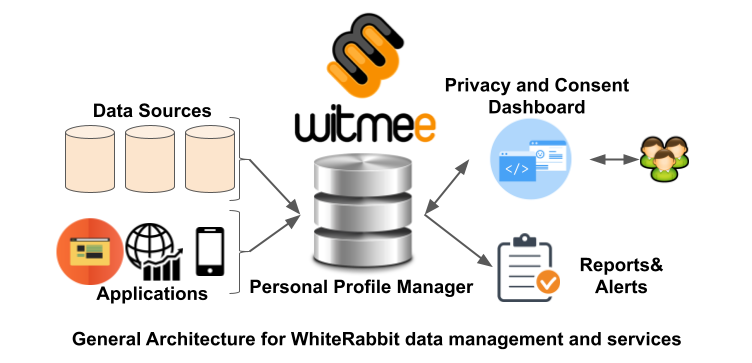
WhiteRabbit will first validate the business model and design a commercialisation roadmap for the new start-up that will be created by the team that developed the software platform’s original prototype; then the project will implement actions to test the product in a market environment and finally it will create opportunities for growth by organising meetings with investors and potential customers.
The WhiteRabbit project will have an impact in terms of innovation introduced into the market (the platform), improvement of entrepreneurial mind-set (researchers becoming entrepreneurs within the start-up), stimulation of growth and jobs (a new start-up will be created).
Start date: April 2017
End date: July 2018
Coordinator: UNIVERSITY OF TRENTO
Coordinator partners: META GROUP SRL, Italy
Knowdive members participating to the project: Fausto Giunchiglia, Ronald Chenu-Abente
Knowdive research areas relevant to the project: Human-Machine Symbiosis
Keywords: Privacy management, Data Integration, Access control, Knowledge Representation
Funding agency and program: H2020-EU.1.2.1.
Access the page WhiteRabbit , One page flier
Smart Society
Society is progressively moving towards a socio-technical ecosystem in which the physical and virtual dimensions of life are more and more intertwined and where people interaction . . .
Smart Society
SmartSociety: Hybrid and Diversity-Aware Collective Adaptive Systems: When People Meet Machines to Build a Smarter Society
Society is progressively moving towards a socio-technical ecosystem in which the physical and virtual dimensions of life are more and more intertwined
and where people interaction often takes place with or mediated by machines. The scale at which this is happening and the differences in culture,
language and interests makes the problem of establishing effective communication and coordinated action increasingly challenging. So far,
the attention has been mainly devoted to systems that provide or impose some form of harmonization or lightweight coordination of meaning
and actions where machines do most of the computation and humans are at the periphery and only act as consumers. Our goal is to move towards
a hybrid system where people and machines tightly work together to build a smarter society. We envision a new generation of Collective Adaptive
Systems centred on the two foundational notions of compositionality and diversity where humans and machines "compose" by synergically complement
each other thus bridging the semantic gap between low level machine and high level human interpretation of data and where they interoperate
collectively to achieve their possibly conflicting goals both at individual and societal levels. Operationally, peers in the system will
implement a continuous unlimited cycle in which data is sensed, interpreted, shared, elaborated and acted upon. Actions are taken on the
basis of system suggestions and the way humans react to them, while generating new data thus alimenting the cycle ad infinitum.To meet this
very ambitious goal the SmartSociety project will develop foundational principles for the operations and design of hybrid and diversity-aware
collective adaptive systems, paving the way to the arising of a smarter form of society.
Start date: January 2013
End date: December 2016
Coordinator: UNIVERSITY OF TRENTO
Coordinator partners: TECHNISCHE UNIVERSITAET WIEN, Austria,
DEUTSCHES FORSCHUNGSZENTRUM FUR KUNSTLICHE INTELLIGENZ GMBH, Germany,
BEN-GURION UNIVERSITY OF THE NEGEV, Israel,
IMAGINARY SRL, Italy,
U-HOPPER SRL, Italy,
KARLSTADS UNIVERSITET, Sweden,
THE CHANCELLOR, MASTERS AND SCHOLARS OF THE UNIVERSITY OF OXFORD, United Kingdom,
UNIVERSITY OF SOUTHAMPTON, United Kingdom,
THE UNIVERSITY OF EDINBURGH, United Kingdom
Knowdive members participating to the project: Fausto Giunchiglia, Ronald Chenu-Abente
Knowdive research areas relevant to the project: Human-Machine Symbiosis, Artificial Human Cognition
Keywords: Socially and Perception-aware Knowledge, Privacy protection, Knowledge Management, Domain Development, Data Integration,
Machine Learning, Artificial Intelligence
Funding agency and program: FP7-ICT EU
Access the page Smart Society
Eurostat
The European Big Data Hackathon is an event organized by the European Commission (Eurostat) which gathers teams from all over Europe to compete for the best data . . .
Eurostat
Data collection via i-log application for the European Big Data Hackathon 2019
The European Big Data Hackathon is an event organized by the European Commission (Eurostat) which gathers teams from all over Europe to
compete for the best data product combining official statistics and big data to support policy makers in one pressing policy question or
statistical challenge facing Europe. The Hackathon will take place back to back with the conference New Techniques and Technologies in
Statistics (NTTS) in March 2019 in Brussels.
The University of Trento developed the i-Log app, which represents an innovative tool for
computational social sciences, and is a suitable technology to be used throughout the Hackathon.
The Android i-Log app provides an answer to the needs of the Hackathon and Eurostat intends to purchase the services of the Department
of Information Engineering and Computer Science of the University of Trento for the setting up of an experiment using the i-Log app.
Start date: December 2018
End date: April 2019
Coordinator: Mattia Zeni
Coordinator partners: European Commission (Eurostat), University of Trento
Knowdive members participating to the project: Roberto Bona, Mattia Zeni, Enrico Bignotti
Knowdive research areas relevant to the project: Human-Machine Symbiosis
Keywords: Sensor Data Collection, Big Data, Big Data Analysis
Funding agency and program: European Commission (Eurostat)
Access the page Eurostat
SPRINT
The Digital Innovation Hub Programme must establish data coverage nationally across the UK for a wide variety of data sets (primary, secondary, social care, etc) across many . . .
SPRINT
SPRINT - Graph-Based Data Federation for Healthcare Data Science
The Digital Innovation Hub Programme must establish data coverage nationally across the UK for a wide variety of data sets
(primary, secondary, social care, etc) across many dimensions (genotypic, phenotypic, etc) for data sets that are curated locally
in many data formats at many sites. This requires a single framework and a common approach to interoperability. Our aim is to
provide a convincing demonstration that these data sets can be linked flexibly through graph data and that this linkage can
be used to support practical, adaptive data maintenance and inference of knowledge beyond that available to HDR-UK by other means.
We will do this by deploying well understood techniques from ontology definition (based on graph data languages) to provide a formal,
extensible “map” of the data assets – telling us precisely which queries could practically be made within and across data sets.
Our framework will be based on generic and open data standards, enabling HDR-UK to provide opportunities for industry methods
consistent with the framework to be used to acquire, manage and analyse linked data while preserving governance oversight and privacy.
Start date: April 2019
End date: December 2019
Coordinator: University of Edinburgh
Coordinator partners: University of Trento, University of Aberdeen, NSS National Health Services of Scotland, University of Dundee
Knowdive members participating to the project: Gábor Bella, Subhashis Das, Simone Bocca
Knowdive research areas relevant to the project: Language Diversity, Knowledge Diversity
Keywords: Knowledge-Based Data Integration, Domain Knowledge, Health Data Integration
Funding agency and program: HDR UK SPRINT
Access the page SPRINT
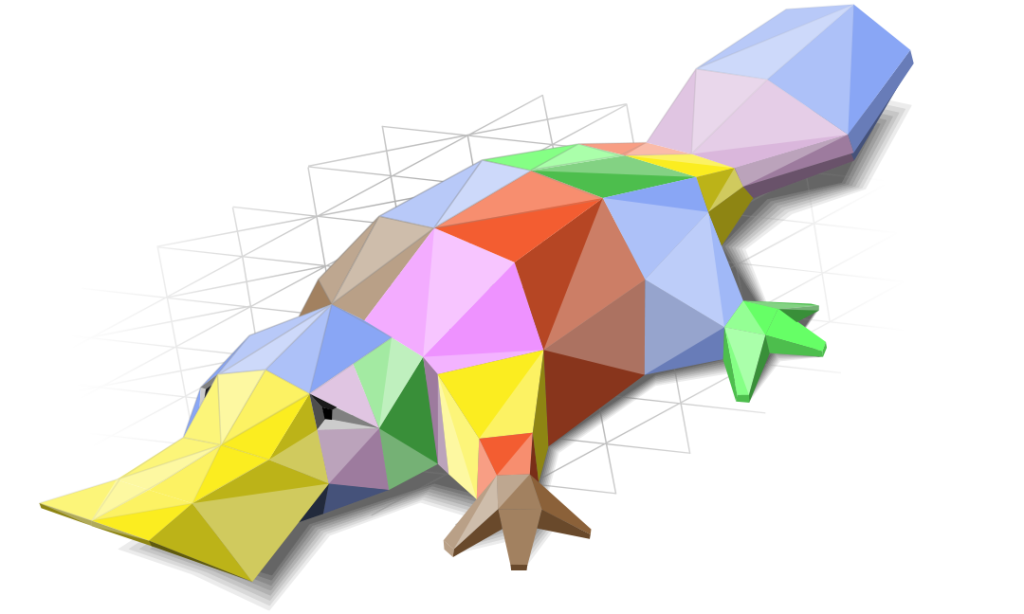
Safe Haven 1
Healthcare is rapidly becoming increasingly data intensive. The sector already produces a significant amount of data - from scans and imaging data, to biomarkers and genomic . . .
Safe Haven 1
Healthcare Data Safe Havens
Healthcare is rapidly becoming increasingly data intensive. The sector already produces a significant amount of data - from scans and imaging data,
to biomarkers and genomic data, as well as wide scale population health information. However, the vast majority of available data sets are
locked within different data jurisdictions, often with public sector organisations maintaining and controlling the files.
The Digital Health Data Federation will work to overcome this limitation, by allowing research-related experiments to be undertaken
using large scale data from different jurisdictions. Access to large-scale data enables more reliable and quicker research-related
analysis to be undertaken, which has the potential to transform the provision of healthcare. The project is seeking to engage customers
from both the public and private sectors, in order to deliver healthcare benefits and facilitate research.
Start date: January 2016
End date: December 2017
Coordinator: University of Edinburgh, UK
Coordinator partners: The DataLab (UK), Engineering – Ingegneria Informatica S.p.A. (Italy),
University of Trento, NSS National Health Services of Scotland (UK)
Knowdive members participating to the project: Gábor Bella, Subhashis Das, David Leoni
Knowdive research areas relevant to the project: Language Diversity
Keywords: Knowledge-Based Data Integration, Domain Knowledge, Health Data Integration
Funding agency and program: EIT Digital

Safe Haven 2
Healthcare is rapidly becoming increasingly data intensive. The sector already produces a significant amount of data - from scans and imaging data, to biomarkers and genomic . . .
Safe Haven 2
Digital Health Data Federation
Healthcare is rapidly becoming increasingly data intensive. The sector already produces a significant amount of data - from scans and imaging data,
to biomarkers and genomic data, as well as wide scale population health information. However, the vast majority of available data sets are
locked within different data jurisdictions, often with public sector organisations maintaining and controlling the files. The Digital Health
Data Federation will work to overcome this limitation, by allowing research-related experiments to be undertaken using large scale data
from different jurisdictions. Access to large-scale data enables more reliable and quicker research-related analysis to be undertaken,
which has the potential to transform the provision of healthcare. The project is seeking to engage customers from both the public and
private sectors, in order to deliver healthcare benefits and facilitate research.
Start date: January 2016
End date: December 2017
Coordinator: The DataLab, UK
Coordinator partners: University of Edinburgh (UK), Engineering – Ingegneria Informatica S.p.A. (Italy),
University of Trento, NSS National Health Services of Scotland (UK)
Knowdive members participating to the project: Gábor Bella, Subhashis Das, David Leoni
Knowdive research areas relevant to the project: Language Diversity
Keywords: Knowledge-Based Data Integration, Domain Knowledge, Health Data Integration
Funding agency and program: EIT Digital

SHIB
The overarching goal of Safe Haven in a Box is to create a medical data integration solution, as well as a corresponding methodology and business model, that allow public healthcare . . .
SHIB
Safe Haven in a Box
The overarching goal of Safe Haven in a Box is to create a medical data integration solution, as well as a corresponding methodology and business model,
that allow public healthcare services to run research experiments in a more effective, scalable, extensible, and—as a longer-term
perspective—cross-jurisdictional manner. The project described in this document is a pilot project, running from 1 April to 31 December 2017,
with the goal of developing a prototype system designed to respond to the technological and process optimisation needs of NHS Scotland.
The prototype integrates and serves all necessary data in order to run a research experiment as initially defined jointly by NSS and project stakeholders.
Start date: April 2017
End date: December 2017
Coordinator: University of Trento, Fausto Giunchiglia
Coordinator partners: NSS National Health Services of Scotland, University of Edinburgh
Knowdive members participating to the project: Gábor Bella, Subhashis Das, David Leoni
Knowdive research areas relevant to the project: Language Diversity, Knowledge Diversity
Keywords: Language Diversity, Human-Machine Symbiosis, Research and Innovation, Unity Through Diversity
Funding agency and program: University of Edinburgh
QROWD
Big Data integration in European cities is of utmost importance for municipalities and companies to offer effective information services, enable efficient data-driven transportation and mobility, reduce CO2 . . .
QROWD
QROWD - Because Big Data Integration is Humanly Possible
Big Data integration in European cities is of utmost importance for municipalities and companies to offer effective information
services, enable efficient data-driven transportation and mobility, reduce CO2 emissions, assess the efficiency of
infrastructure, as well as enhance the quality of life of citizens. At present this integration is substantially limited due to the
following factors: 1) Urban Big Data is locked in isolated industrial and public sectors, and 2) The actual Big Data integration
is an extremely hard technical problem due to the heterogeneity of data sources, variety of formats, sizes, quality as well as
update rates, such that the integration requires significant human intervention.
QROWD addresses these challenges by offering methods to perform cross-sectoral streaming Big Data integration including
geographic, transport, meteorological, cross domain and news data, while capitalizing on human feedback channels. The
main objectives of QROWD are:
(1) Facilitating cross-sectoral Big Data stream integration for urban mobility including real-
time data on individual and public transportation combined with further available sources, such as weather conditions and
infrastructure information to create a comprehensive overview of the city traffic; (2) Supporting participation and feedback of
various stakeholder groups to foster data-driven innovation in cities; and (3) Building a platform providing hybrid
computational methods relying on efficient algorithms complemented with human computation and feedback.
The main outcomes of QROWD are: (1) Two data value chains in the sectors of urban mobility and public transportation
using a mix of large scale heterogeneous multilingual datasets; and (2) Cross-sectoral and cross-lingual technology,
including algorithms and tools covering all phases of the cross-sectoral Big Data Value Chain building on W3C standards
Big Data integration in European cities is of utmost importance for municipalities and companies to offer effective information
services, enable efficient data-driven transportation and mobility, reduce CO2 emissions, assess the efficiency of
infrastructure, as well as enhance the quality of life of citizens. At present this integration is substantially limited due to the
following factors: 1) Urban Big Data is locked in isolated industrial and public sectors, and 2) The actual Big Data integration
is an extremely hard technical problem due to the heterogeneity of data sources, variety of formats, sizes, quality as well as
update rates, such that the integration requires significant human intervention.
QROWD addresses these challenges by offering methods to perform cross-sectoral streaming Big Data integration including
geographic, transport, meteorological, cross domain and news data, while capitalizing on human feedback channels.
The main objectives of QROWD are: (1) Facilitating cross-sectoral Big Data stream integration for urban mobility including real-
time data on individual and public transportation combined with further available sources, such as weather conditions and
infrastructure information to create a comprehensive overview of the city traffic; (2) Supporting participation and feedback of
various stakeholder groups to foster data-driven innovation in cities; and (3) Building a platform providing hybrid
computational methods relying on efficient algorithms complemented with human computation and feedback.
The main outcomes of QROWD are: (1) Two data value chains in the sectors of urban mobility and public transportation
using a mix of large scale heterogeneous multilingual datasets; and (2) Cross-sectoral and cross-lingual technology,
including algorithms and tools covering all phases of the cross-sectoral Big Data Value Chain building on W3C standards
and capitalizing on a flexible and efficient combination of human and machine-based computation.
Start date: December 2016
End date: November 2019
Coordinator: UNIVERSITY OF SOUTHAMPTON, UK
Coordinator partners: ATOS SPAIN SA, Spain,
TOMTOM DEVELOPMENT GERMANY GMBH, Germany,
COMUNE DI TRENTO, Italy,
AI4BD GMBH, Switzerland,
INMARK EUROPA SA, Spain,
INSTITUT FUR ANGEWANDTE INFORMATIK (INFAI), Germany,
UNIVERSITY OF TRENTO, Italy,
TOMTOM LOCATION TECHNOLOGY GERMANY, Germany
Knowdive members participating to the project: Mattia Zeni, Enrico Bignotti, Ronald Chenu-Abente, Fausto Giunchiglia
Knowdive research areas relevant to the project: Knowledge Diversity, Human-Machine Symbiosis
Keywords: Socially and Perception-aware Knowledge, Data Integration, Machine Learning, Artificial Intelligence,
Quality in Mobile Crowdsourcing
Funding agency and program: H2020-EU.2.1.1.
Description from the Trento administration (in Italian):
QROWD
European Commision description


